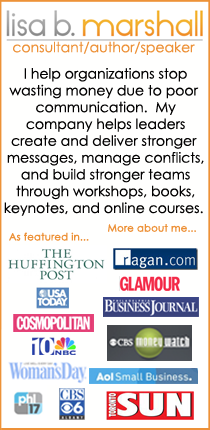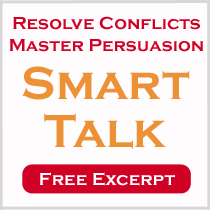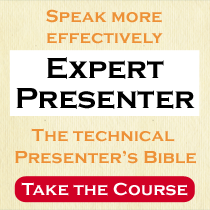How to Get Rid of Ums and Ahs!

Disfluencies, in general, weaken messages. They’re distracting for your listeners and they make you sound bad.
In the first 30 seconds I counted four “likes” and three “rights” and two “ums”. Worse, I’m certain that Tom had no idea that his speech was infected with these verbal viruses. In his defense, credibility killers (e.g. like, so, you know, right, uh, ah) are actually really common in everyday conversation. Researchers say that about 20% of “words” in everyday conversation are disfluencies.
In fact, people around the world fill pauses in their own way. In Britain they say “uh,” Hebrew speakers say “ehhh,” the Turks say “mmmmm.” The Japanese say “eto” (eh-to) and “ano” (ah-no), Spanish speakers “esto”, and Mandarin speakers “neige” (NEH-guh) and “jiege” (JEH-guh). In Dutch and German it’s “uh, um, mmm.” In Swedish it’s “eh, ah, aah, m, mm, hmm, ooh, a and oh” (man, this is starting to sound x-rated podcast, I’d better stop, I think you have the idea!)
So today’s article is about what can you do to boost your immunity to these viruses. Its about how you can reduce disfluencies. Notice I didn’t say get rid of them all together. Reduction, versus complete elimination, should be your goal.
Um, Like… Do I Have Disfluencies?
The first and most important step towards more fluent speaking is to become aware of your distracting speech habits.The fastest way to find out if you have trouble in this area is to ask a close trusted friend (or public speaking coach, hint, hint).
Anyway, perhaps the BEST way is to record yourself. If you are comfortable with technology I suggest using free audio editing software (Garageband on mac and Audacity for PC). With this software you actually see your words in audio format. For a more simplistic solution try Utterz.com–you can just call a phone number and it will record your voice.
Once you’ve got some sample recordings, the next step is play back your recordings several times. Listen specifically for your disfluences—go ahead and make of game of it. First just list them and then start counting them. If you are counting past three or four, you’ll know you have a problem.
Focus on Listening to Yourself Talk
If recording seems like too much effort, just, focus, for one full week, on listening, really listening carefully for distracters when you talk. Some experts like to suggest you put tiny “um” and “ah” stickers on your computer or cell phone to remind you to be listening.
Trust me, after a week of listening, or recording and listening, you’ll have become acutely aware of your specific problems. And that’s exactly what you need; awareness. You need to be able to hear your disfluencies in your mind before you blurt them out.
How to Reduce Your Credibility Killers
If you’ve done your homework you’ll know when one of your credibility killers is just about to escape from your mouth. Then, all you’ll need to do is to keep quiet. I know, easier said than done. At first you’ll have awkward pauses in your speech, but that’s still better, actually far better, than speech peppered with “likes” and “ums.” Eventually the pauses get shorter. With time, you’ll be more fluent and have fewer “ums” and “ahs.
So the next time you introduce yourself, be warned, somebody sitting next to you might just be counting your “ums”, “ahs”, and “you knows”. Don’t let your disfluencies kill your credibility. It really is worth it to take some time to focus on this. It can make a big difference in how you’re perceived.
If you enjoyed this post, you may also like:











There are 7 comments .